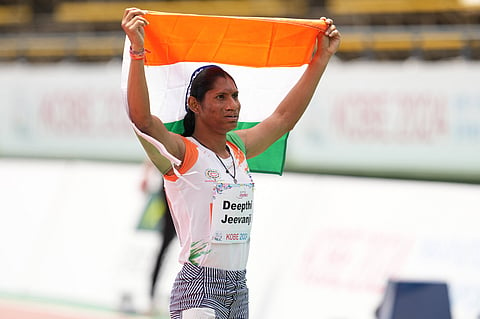Para athletes are elite competitors – not tragic or inspirational caricatures
ON 3 SEPTEMBER, Deepthi Jeevanji, India’s first athlete with an intellectual disability to compete in the Paralympic Games, won the bronze medal in the women’s 400-metre race. Indian news publications tracking the games ran headlines about her win and quick takes about how she overcame her disability to attain sporting success. Jeevanji’s qualification for this year’s Paralympics, being held in Paris between 28 August and 8 September, received minimal coverage in the Indian media despite her already significant achievements. Before she got to the games, Jeevanji had won gold at the World Para Athletics Championship in Japan this May, where she broke a world record, and another gold at the Asian Games in China in 2023.
Earlier this year, The Documentary Podcast by the BBC World Service had picked her story up. In an episode that aired in August, it explored several events in her life: her achievements as an athlete, the stigma because of her disability and her family’s financial challenges. It described how her parents’ faith in her abilities, and finding supportive mentors and coaches, enabled her to pursue her dream of becoming an international athlete – even when the world around her was calling her a “monkey” and still wondering how she would ever get through school. The podcast was a rare example of in-depth coverage of her life as an athlete.

